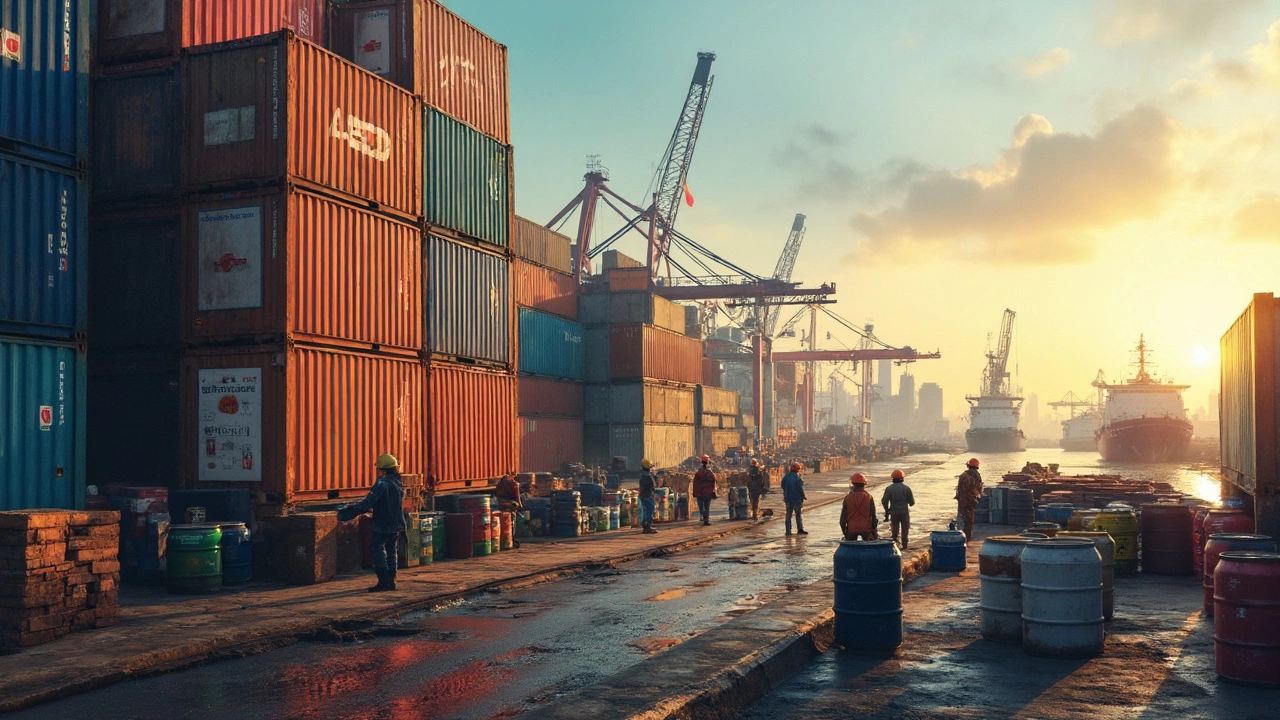Top Imported Chemicals: Your Quick Guide to Smart Sourcing
If you’re buying chemicals for a factory, lab, or home product line, you’ve probably wondered which imports are worth the hassle. The right chemicals can boost quality, cut costs, and keep your production line humming. Below we break down the most common imported chemicals, why they’re in demand, and how to pick a reliable supplier without getting lost in paperwork.
Why Companies Import Chemicals
Most Indian manufacturers can’t produce everything they need domestically. High‑purity solvents, specialty polymers, and certain catalysts are either too expensive to make locally or simply not available. Importing gives you access to cutting‑edge formulas, consistent grades, and often lower prices thanks to global scale.
Another big reason is compliance. International standards like ISO 9001 or REACH make imported chemicals a safer bet for regulated markets. When you source from a certified exporter, you get documentation that helps you pass audits and avoid costly recalls.
Top Categories of Imported Chemicals
1. Solvents and cleaning agents – Acetone, methanol, and industrial ethanol are imported in large volumes because they’re used in paint, electronics, and pharma manufacturing. Their purity levels matter a lot, so buyers look for suppliers with strict quality control.
2. Specialty polymers – Things like PTFE, PEEK, and high‑performance nylon aren’t produced in large batches in India. These polymers give you heat resistance, chemical stability, and strength for aerospace or automotive parts.
3. Agro‑chemicals – Certain herbicides and growth regulators are still sourced from the US, Brazil, and China. They often have higher efficacy rates, which can improve crop yields for Indian farmers.
4. Pharmaceutical actives – APIs (active pharmaceutical ingredients) such as ibuprofen, paracetamol, and specialty antibiotics are frequently imported to meet the fast‑growing Indian drug market.
5. Catalysts and reagents – Fine chemicals like palladium on carbon or organometallic catalysts are essential for fine‑chemical synthesis. Importing ensures you get the latest formulations that boost reaction yields.
Knowing these categories helps you focus your search and ask the right questions when you contact a supplier.
How to Choose the Right Supplier
Start with a short list of exporters that have a proven track record in your specific chemical class. Look for certifications (ISO, GMP, REACH) and ask for recent test reports. A good supplier will provide a Safety Data Sheet (SDS) up front – if they don’t, that’s a red flag.
Next, compare pricing but keep an eye on hidden costs. Shipping, customs duties, and handling fees can add up fast. Some exporters offer DDP (Delivered Duty Paid) terms, which simplify the process – you pay one price and they handle all paperwork.
Finally, test a small batch before committing to larger volumes. This trial run lets you verify purity, performance, and the supplier’s delivery reliability. If the sample meets your specs, you can negotiate better rates for bulk orders.
Remember, a cheap price now can turn costly later if the chemical fails quality checks or causes downtime.
Balancing Cost, Quality, and Sustainability
Many buyers think they have to choose between cheap and green. That’s not always true. Look for suppliers that use greener production methods, such as solvent‑free processes or renewable feedstocks. These options may cost a bit more upfront but can reduce waste disposal fees and improve your brand’s eco‑image.
Another tip: batch your orders to reduce shipping frequency. Fewer shipments mean lower carbon emissions and less paperwork.
By keeping an eye on the total cost of ownership – price, quality, compliance, and environmental impact – you’ll make smarter decisions on the top imported chemicals that power your business.
Ready to start? Grab a list of certified exporters, request SDSs, and run a pilot batch. The right chemicals will flow into your operation, boost productivity, and keep you ahead of the competition.
Which Chemical Is Mostly Imported in India? Key Insights for Chemical Manufacturers
India relies on chemical imports for its massive pharmaceutical, agriculture, and manufacturing industries. This article uncovers the top chemical India imports, why they're crucial, and what moves the market. From China’s dominance to the latest import trends, get clear insights and tips for staying ahead. Useful for anyone involved in sourcing or trading chemicals in India. Stay informed and make smarter choices in a tough market.
View More




